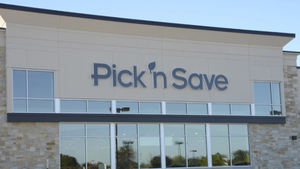Online Tool to Standardize Recall Process
The Food Marketing Institute is developing an online tool to facilitate and standardize the industry's recall process, according to Tim Hammonds, FMI's president and chief executive officer. The tool, which is now being tested, will include an online form for manufacturers to input recall information, and a database of recall coordinators at supermarkets and wholesalers who will
January 21, 2008
DAVID ORGEL
SCOTTSDALE, Ariz. — The Food Marketing Institute is developing an online tool to facilitate and standardize the industry's recall process, according to Tim Hammonds, FMI's president and chief executive officer.
The tool, which is now being tested, will include an online form for manufacturers to input recall information, and a database of recall coordinators at supermarkets and wholesalers who will receive that information.
“This is our highest priority to bring order to a chaotic process,” Hammonds said during a presentation at the FMI's Midwinter Executive Conference here. “You need a single system that's easy and fast.”
The process will be available for industry use early this year. FMI developed the solution with GS1, and is working closely with Grocery Manufacturers Association and other industry groups and the government.
Hammonds said the traditional recall process has been marked by miscommunication and confusion. “Many of you have good practices in place in your own companies, but there are still some real problems.”
Perhaps the biggest problem is the lack of a standardized process, he explained. Retailers sometimes first learn about recalls through the media rather than from suppliers. Retailers may not know the correct supplier contact information for further details. Suppliers range widely in the level of information they provide about recalls and often aren't aware of exactly what retailers require.
FMI's new standard form will highlight for suppliers the key information retailers need and enable the data to be sent to either specific coordinators or to the entire retailer/wholesaler database.
The new system will be called Food Retail Collaboration Zone and the online location will be formally announced soon.
Suppliers using the process will be asked to report a range of information, such as UPC numbers and photos of impacted products, geographic regions involved, details about consumer hotlines, media contacts, website location, and information to facilitate product returns or destruction.
The system will not be limited to only FMI members, Hammonds said. FMI also envisions capabilities for follow-up electronic communications between stores, headquarters and suppliers.
The program will at first be focused on food products but later extended to other categories carried by retailers.
FMI is also considering a range of additional recall tools that include:
Partnering with GMA on best-practice recommendations.
Creating a standardized in-store shelf sign for recalls.
Streamlining frequent-shopper-based consumer notification systems by using third parties.
Developing best practices for disposing of recalled products, including the role of recall centers.
Considering the advantages and challenges of locking out UPC codes after a recall alert.
About the Author
You May Also Like




